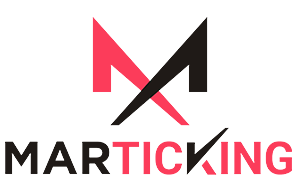How to Improve Your Google Ads Quality Score Quickly
In the world of digital advertising, Google Ads reigns supreme, offering businesses unparalleled reach and targeting capabilities. However, achieving success with Google Ads requires more than just setting up campaigns and bidding on keywords. One crucial metric that can make or break your campaigns is the Quality Score. In this guide, we’ll delve into the intricacies of Google Ads Quality Score, uncovering strategies to quickly boost your score and maximize your advertising ROI.
Understanding Google Ads Quality Score
Quality Score, in essence, is Google’s measure of the relevance and quality of your ads, keywords, and landing pages. It plays a pivotal role in determining your ad rank and cost-per-click (CPC). A high Quality Score not only improves your ad positioning but also lowers your advertising costs.
Factors Influencing quality score of google ads
Google considers several factors when calculating Quality Score:
- Keyword Relevance: The relevance of your keywords to the ad group and search query is paramount. Ensure that your keywords align closely with the ad copy and landing page content.
- Ad Relevance: The relevance of your ad to the user’s search query is crucial. Craft compelling ad copy that addresses the user’s intent and includes relevant keywords.
- Landing Page Experience: The user experience on your landing page significantly impacts Quality Score. Make sure your landing page is relevant, easy to navigate, and provides valuable content.
- Click-Through Rate (CTR): The CTR of your ads is a strong indicator of their relevance and effectiveness. Higher CTRs are associated with higher Quality Scores.
- Ad Extensions: Utilizing ad extensions such as sitelinks, callouts, and structured snippets can enhance your ad’s visibility and relevance, positively impacting Quality Score.
Strategies to Improve google Quality Score Quickly
Now that we’ve outlined the key factors influencing Quality Score, let’s explore actionable strategies to boost your score rapidly:
- Perform Keyword Research: Conduct thorough keyword research to identify high-relevance keywords for your campaigns. Use tools like Google Keyword Planner to discover relevant keywords with substantial search volume.
- Organize Your Campaign Structure: Structure your campaigns and ad groups logically based on themes and relevancy. This allows for better control over your keywords and ad messaging, leading to improved Quality Scores.
- Optimize Ad Copy: Write compelling ad copy that incorporates relevant keywords and speaks directly to the user’s needs and interests. A/B test different ad variations to identify the most effective messaging.
- Enhance Landing Page Experience: Ensure your landing pages are optimized for relevance, speed, and user experience. Align the landing page content with the ad copy and include clear calls-to-action to encourage conversions.
- Monitor and Adjust Regularly: Continuously monitor your campaigns’ performance and make adjustments as needed. Analyze metrics such as CTR, conversion rate, and Quality Score to identify areas for improvement.
- Utilize Ad Extensions: Take advantage of ad extensions to provide additional information and enhance the visibility of your ads. Experiment with different ad extensions to see which ones resonate best with your audience.
- Improve Ad Relevance: Regularly review your ad copy and keywords to ensure they remain relevant to your target audience’s search queries. Make adjustments as necessary to maintain high ad relevance and Quality Scores.
google score
- Understand Google’s Automated Bidding Options:
Google offers various automated bidding strategies, such as Target CPA (Cost Per Acquisition) and Target ROAS (Return On Ad Spend), which can help optimize your campaigns for better performance. These strategies take into account factors like Quality Score when determining bids, so it’s essential to understand how they work and leverage them effectively.
- Optimize for Mobile:
With the majority of internet users now accessing content via mobile devices, it’s crucial to ensure that your ads and landing pages are optimized for mobile users. Google prioritizes mobile-friendly experiences, so optimizing your campaigns for mobile can positively impact your Quality Score.
- Leverage Ad Performance Data:
Utilize the wealth of data available in Google Ads to gain insights into your ad performance. Analyze metrics such as impression share, ad position, and conversion data to identify opportunities for improvement and optimize your campaigns accordingly.
- Test Different Ad Formats:
Experiment with different ad formats, such as text ads, image ads, and video ads, to see which ones resonate best with your target audience. Testing different ad formats can help you identify the most effective ways to engage users and improve your Quality Score.
Conclusion:
In summary, mastering Google Ads Quality Score is crucial for Marticking to enhance the effectiveness of its advertising campaigns. By focusing on factors like keyword relevance, ad quality, landing page experience, and user engagement, Marticking can quickly improve its Quality Score and achieve better campaign results. Implementing the strategies outlined in this guide consistently, staying informed about Google’s best practices, and seeking professional help if needed will enable Marticking to unlock the full potential of Google Ads and drive meaningful results for its business. With dedication and persistence, Marticking can establish itself as a formidable presence in the digital advertising landscape.


